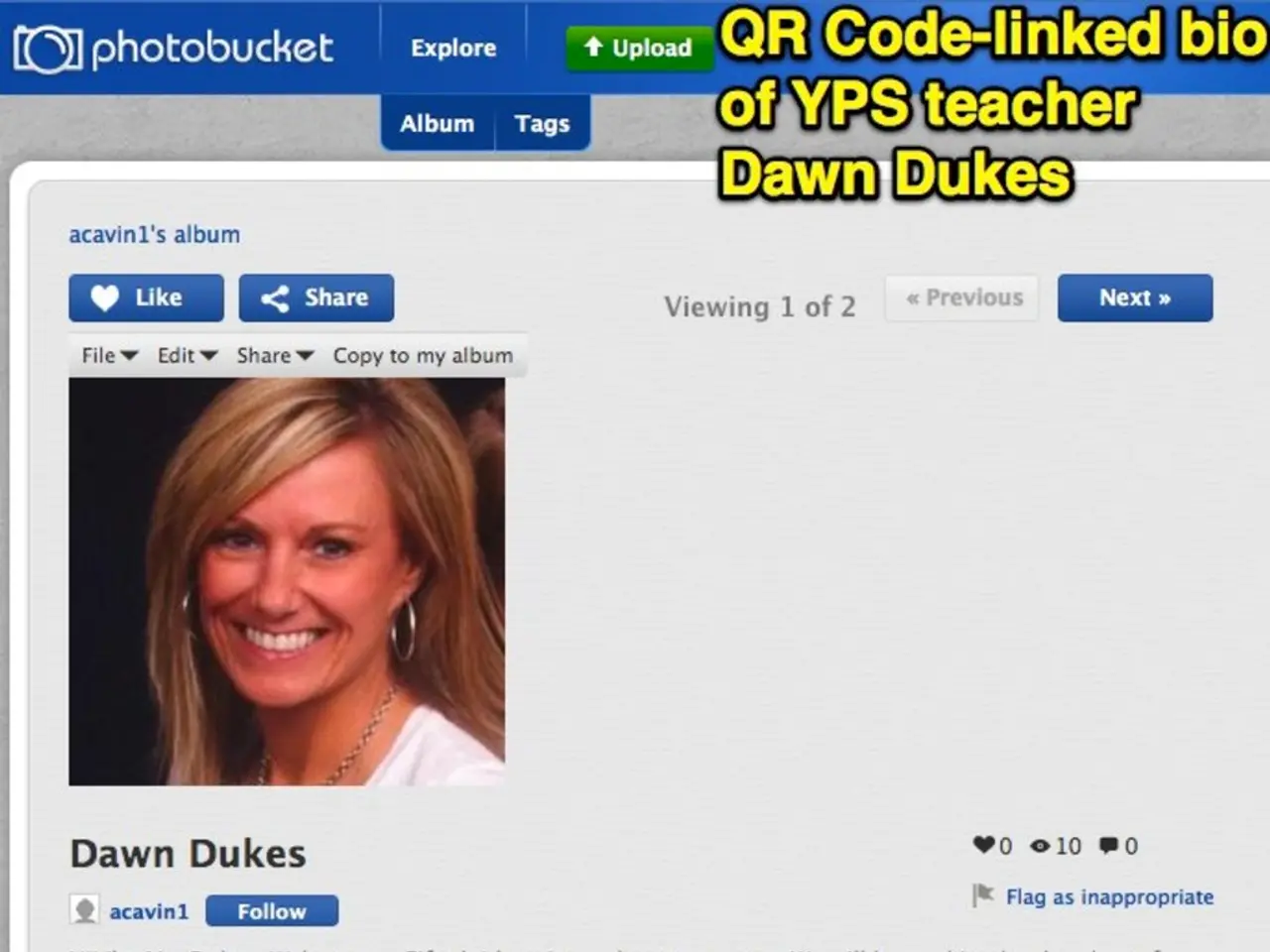Study reveals struggled moderation of content within X community
In the digital age, social media platforms play a significant role in shaping civic discourse and electoral processes. One such platform, previously known as Twitter, now known as X, employs algorithmic resolution of collective origin moderation to manage content. This system, which combines AI and community-driven approaches, has far-reaching implications for public engagement and political dialogue.
The study, titled 'Algorithmic Resolution of Collective Origin Moderation', was conducted by the University of Paris and delves into the impact of this system on civic discourse and electoral processes.
#### The Impact on Civic Discourse and Electoral Processes
1. Polarization and Misinformation: Social media algorithms often promote divisive content, reinforcing existing biases and potentially spreading misinformation. This can lead to a polarized public discourse, affecting how users perceive and engage with political information.
2. Filter Bubbles and Group Polarization: The algorithmic promotion of content similar to users' existing views creates "filter bubbles," where users are less likely to encounter opposing viewpoints. This can intensify beliefs and radicalize opinions, influencing civic discourse negatively.
3. Influence on Electoral Processes: The dissemination of misinformation and the promotion of divisive content can influence public opinion and electoral outcomes. Social media platforms play a crucial role in shaping political narratives, which can impact voter decisions and the overall electoral process.
#### Key Findings: User Engagement and Content Moderation
1. AI-Enhanced Content Moderation: The study suggests that AI-assisted feedback can improve the quality and objectivity of community-generated content notes. This is particularly effective when AI provides argumentative feedback, encouraging users to engage with diverse perspectives.
2. Transparency and Bias Concerns: Automated moderation systems, such as those used by X and other platforms, have been criticized for containing biases and lacking transparency. There is evidence that these systems disproportionately affect marginalized communities, highlighting the need for more transparent and equitable moderation practices.
3. User Engagement Challenges: Platforms like X face challenges in balancing content moderation with user freedom of expression. The algorithmic promotion of content can both enhance engagement and lead to the suppression of certain viewpoints, potentially affecting civic discourse negatively.
The study also revealed some interesting statistics about user engagement and content on X. For instance, political content represents a significant portion of the platform, accounting for 65.2% of messages and 76.6% of community note classifications. Sports is the second most frequent category, accounting for 6.3% of messages and community note classifications.
Among the 1.1 million users who signed up for the program this year, 28.9% rated less than ten notes. The study analysed the functioning in various contexts of polarization, analysing 1.9 million moderation notes with 135 million classifications from 1.2 million users. Fact-checking specialist articles appear in only 3.5% of the proposed notes.
The study found that community notes on X capture the main polarized dimension of each country. After processing by the social network, 96.2% of community notes point to supporting sources that aim to contextualize the original publication. Between January and March 2025, half of the notes that achieved the status of useful did so within 4 hours and 47 minutes after the note submission and 15 hours and 17 minutes after the original 'post' publication.
It is worth noting that the study was not related to Musk's AI Company seeking engineers to create 'waifus'. Furthermore, of the posts for which users requested contextual notes, 79.3% were flagged by only one user. Of all the community notes proposed that argue that the original publication is 'misinformed or potentially misleading', only 11.97% received sufficient favorable classifications.
In conclusion, the algorithmic resolution of collective origin moderation on X significantly affects civic discourse and electoral processes, particularly by influencing how information is disseminated and perceived. While AI-enhanced moderation offers potential improvements in content quality, it also raises concerns about bias and transparency. Addressing these issues is crucial to fostering a more inclusive and informed civic discourse.
- What is the impact of the algorithmic resolution of collective origin moderation on civic discourse and electoral processes? Misinformation, polarization, filter bubbles, and group polarization can be promoted, potentially influencing political narratives, public opinion, and electoral outcomes.
- In what ways does the study suggest that AI-assisted content moderation could improve community-generated content on X? AI-assisted feedback can help to improve the quality and objectivity of content, encouraging users to engage with diverse perspectives.
- What concerns have been raised about automated moderation systems like the one used by X? These systems have been criticized for containing biases and lacking transparency, potentially disproportionately affecting marginalized communities. Additionally, platforms face challenges in balancing content moderation with user freedom of expression.







